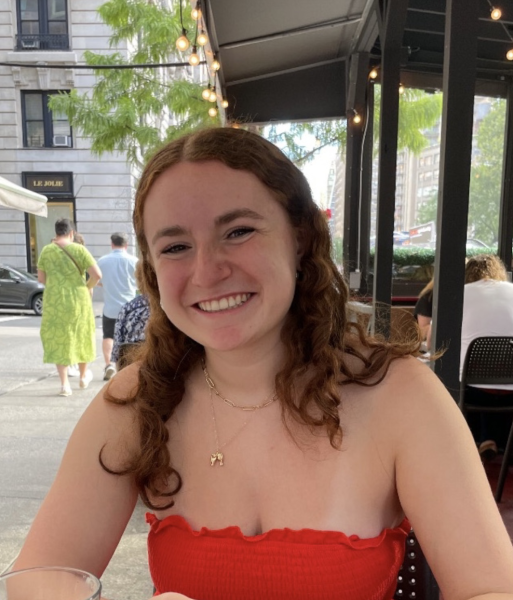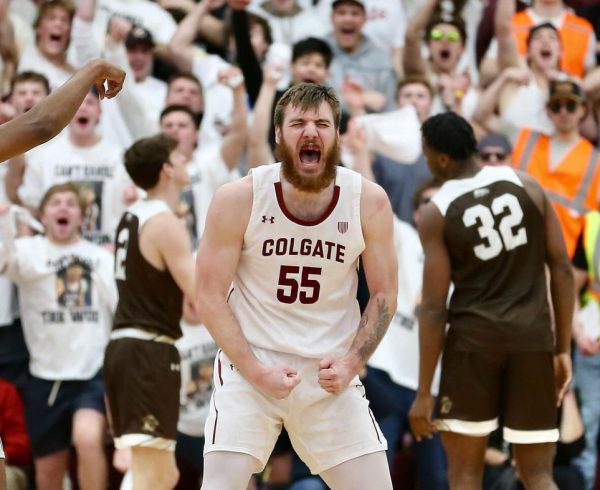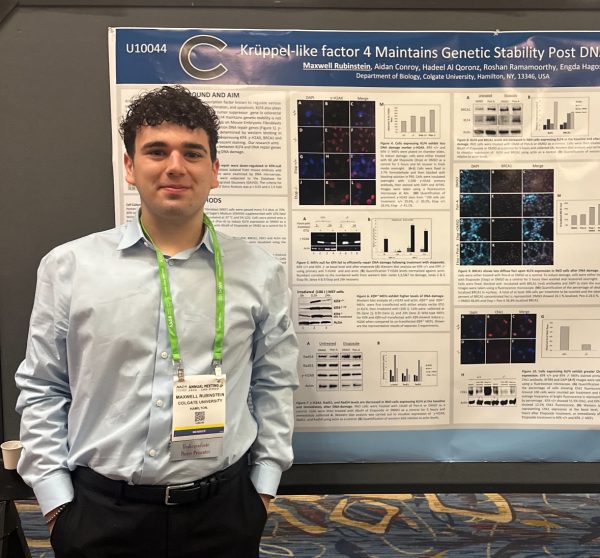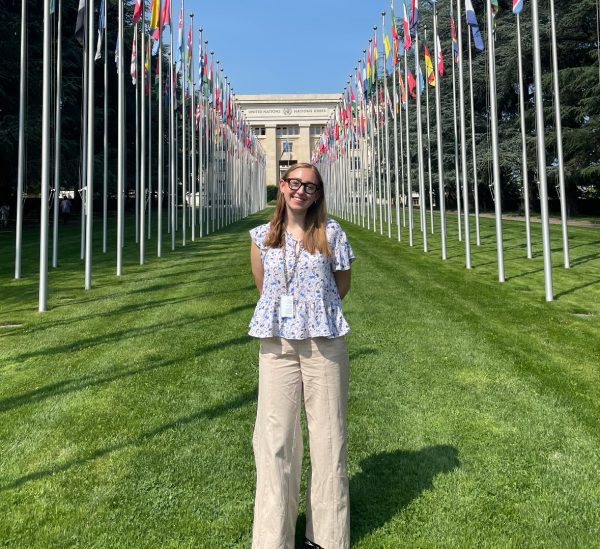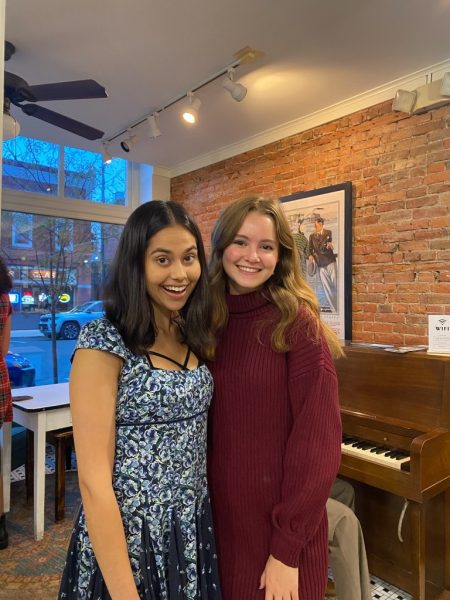Professor Chris Vecsey: The Academic Revolutionary
Christopher (Chris) Vecsey is a professor of philosophy and religion at Colgate University. Vecsey has committed to studying the religion, history and culture of indigenous communities in the United States throughout his scholarly life. He has centered his professional career around teaching classes, performing his own research and producing public works on the subject matter. Entering the world of teaching in the mid-20th century, a time in which many did not perceive this field of study to be legitimate or valuable, Vecsey has worked tirelessly through his work as a professor and academic scholar to change people’s attitude towards the subject, including that of Colgate University’s.
Vecsey discovered his interest in Native American and religious studies during his time at Hunter College throughout the late 1960s. While working on his bachelor’s degree in history at the institution, he took one of few courses offered on the histories of indigenous peoples. Due to the lack of attention attributed to this subject, Vecsey, by the time he graduated in 1970, had learned the extent to which the topic was neglected.
“I studied history … [for] four years at Hunter College and became very interested in the history of religion. I had a teacher at Hunter College who was inventing a thing that … didn’t really exist back then, which was … American Indian history. When [my professor] said he wanted to teach this course … the historians in his department, the older people, said, ‘It can’t be done. There’s no such thing as American Indian history.’ So I became really interested in the American Indian history class and that’s how we got started,” Vecsey explained.
After graduating from Hunter College in 1970, Vecsey further established himself as a professional as he went on to obtain his master’s degree in 1971 and Ph.D. in 1977 in history, literature and religion at Northwestern University. Almost immediately out of graduate school, Vecsey began working as a visiting professor at Hobart and William Smith University, receiving a grant to create a course called “American Indian Texts and Testimonies.” Although he had some freedom to pursue his studies in indigenous peoples’ histories, religions and culture, he found himself unable to permanently commit to this institution or any other as a legitimate job in teaching indigenous peoples’ studies.
He recounted his experience attempting to find such a position. “Every year [that I was teaching at Hobart and William], I looked for a more permanent job. … There were no jobs in American Indian history like that. … Today, there are dozens and dozens of jobs in American Indian history. It’s a big, big field,” Vecsey said.
In 1982, Vecsey finally found a teaching position in the religion and philosophy departments at Colgate University that offered him the opportunity to sufficiently pursue his interest in researching and teaching indigenous peoples’ history. Calling for professionals to help incorporate historically marginalized voices into the department’s courses, Colgate presented Vecsey not only with the opportunity to play a pioneering role in this regard but also to pursue his own interest in teaching his topics of interest and expertise in this department.
“Everyone in [the philosophy and religion] department was either a philosopher or a theologian. You know, so very much focused on Western philosophy. And Christian thought, very, very much. And they wanted something different … I wasn’t a theologian, and I wasn’t a philosopher. … So I got the job to bring something new into the department. I’ve never looked back since.”
Vecsey has stayed at Colgate since he first started at the school 40 years ago, remaining at the forefront of the school’s continual restructuring efforts to ensure that its inclusion and valuing of the voices, histories and cultures of all groups of people are equal. Almost instantly upon beginning his teaching position at Colgate, he joined the ongoing movement within the institution to reform its core curriculum. Just before his arrival, faculty had voted out the then core program, which mandated all Colgate students must take a full-year philosophy and religion course as first-years. This had not been changed since 1928. Vecsey helped determine the specifics of this new curriculum, including which texts and concepts would be included.
“Before, philosophy and religion were at the center of what it was to be a Colgate student. We wanted to make sure that the kinds of questions and the kinds of texts that had never been part of the core curriculum were going to be a part of it. … We wanted to radicalize the curriculum,” Vecsey said.
Shortly after, Vecsey proceeded to help found Colgate’s Native American studies department. With the help of other faculty members who also specialized in the subject, Vecsey remembers how they united through their different departments to create a program solely devoted to studying the histories, cultures and religions of indigenous peoples.
“In the mid-80s, shortly after I arrived, we looked around at ourselves and we said, … ‘We have people in history, astronomy, anthropology, sociology and religion. We’re all here. We’re all doing … a lot of research in American Indian history. We should create a program for some of the people interested in specializing in it and give it a name.’ Since then, there has been an enormous amount of energy that goes into the Native American studies [department] here.”
In addition to teaching countless courses on this subject and playing a role in establishing its permanency and legitimacy on Colgate University’s campus, Vecsey has also devoted himself to Native American studies through his countless books, articles and publications. He has authored and published 17 books, almost all of them either on American Indian religion and/or American Indian history. When asked about how he has devoted his scholarly life to studying this constantly overlooked topic, he touched on his devotion.
“I’m not just a teacher, but I’m a productive scholar. So the devotional part is how much work goes into writing,” Vecsey said.
Throughout his time at Colgate University, Vecsey has also devoted himself to studying religion. Prompted by the institution’s request for him to teach a course on Catholicism and Catholic history in his beginning years here, he has dedicated much time to the study of the religions reflected in his most recent works. Although the religions and cultures of indigenous peoples and Catholics seem very different and have been in contention with each other throughout history, Vecsey considers both central to his scholarly identity and incorporates them into his work.
“I have these two different identities that are involved in my work at Colgate. I try to teach Catholicism with the kind of fairness with which I treat American Indian religion … and I try to treat American Indian religion with the kind of fairness that I treat Catholicism. They are two different kinds of religious traditions but I’m interested in both.”
Throughout the past year and a half, Vecsey has been on a sabbatical, working on a new book centered on Catholicism which he plans to title “The Content and Contentions of Catholicism.” Vecsey has been researching the matters in Catholicism that generate the most spirited debate to discern what is central to the religion. Vecsey, in general, is intrigued by areas of contention in academia and views this as a means to discern what is important to a certain culture or society.
“One of the things that I’ve used as an analytical tool, particularly over the last 20 years or so of my teaching, is to examine what it is that people argue about as a way to understand what they believe in,” he said.
In addition to the upcoming publication of his new book, Vecsey is also very excited to return to Colgate University’s campus this fall and teach a linked course with Professor Timothy Byrnes on religion, politics and Catholicism.




